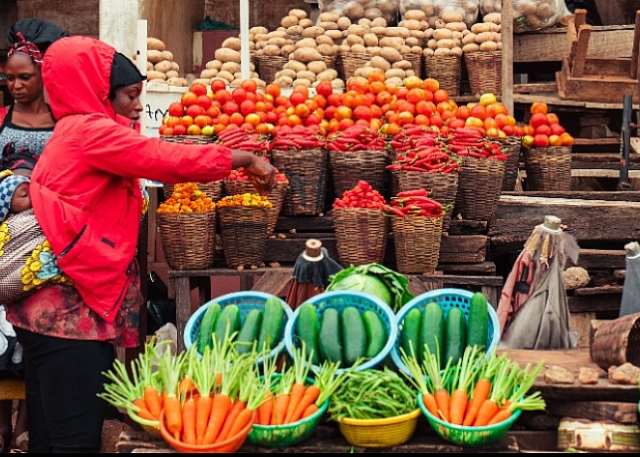Nigeria’s food prices surged by nearly 40% year-on-year in October, reflecting an increase from 37.77% in September, according to data released by the National Bureau of Statistics (NBS). The report also showed that the country’s overall inflation rate rose to 33.9% in October, up from 32.7% the previous month, driven largely by the persistent rise in food costs.
Highlighting the challenges of achieving food security in Nigeria, African Development Bank President and CEO Samaila Zubairu emphasized the need for collaborative efforts. Zubairu described Nigeria’s agricultural sector as a critical driver of economic growth, noting that the country has approximately 70.8 million hectares of agricultural land, with 34 million hectares classified as arable but underutilized.
Despite agriculture employing over 25 million people—representing around 30% of the workforce—it contributes only 20% to the nation’s GDP. This gap, Zubairu argued, underscores the potential for transformation. “Nigeria is a $1 trillion economy waiting to happen,” he stated, adding that effective agricultural development could significantly enhance the country’s economic resilience.
Zubairu called for Nigeria to address its food security challenges by incorporating neighboring countries into its food systems planning. He advocated for investments in infrastructure, logistics, and value-added processes to unlock the sector’s potential. “We need to convene stakeholders to identify challenges and develop actionable solutions. The resources and institutions are available; they need to be better coordinated,” he said.
The Managing Director of the Nigeria Sovereign Investment Authority (NSIA), Aminu Umar-Sadiq, pointed to efforts in promoting agricultural development through backward integration strategies. The NSIA, in collaboration with development partners such as the Africa Finance Corporation (AFC), has focused on initiatives like the Presidential Fertilizer Initiative (PFI).
Launched seven years ago, the PFI aims to reduce Nigeria’s reliance on imported fertilizer by sourcing local raw materials such as urea and limestone while importing phosphate and potash. This initiative has revived moribund blending plants and strengthened local production, thereby curbing job exports and mitigating pressure on foreign exchange.
The rising inflation rates and food costs highlight the urgency for effective policies and coordinated efforts to leverage Nigeria’s agricultural potential. Experts stress that the solutions lie in improving agricultural productivity, fostering regional collaboration, and addressing infrastructure deficits to stabilize food systems and drive sustainable economic growth.





